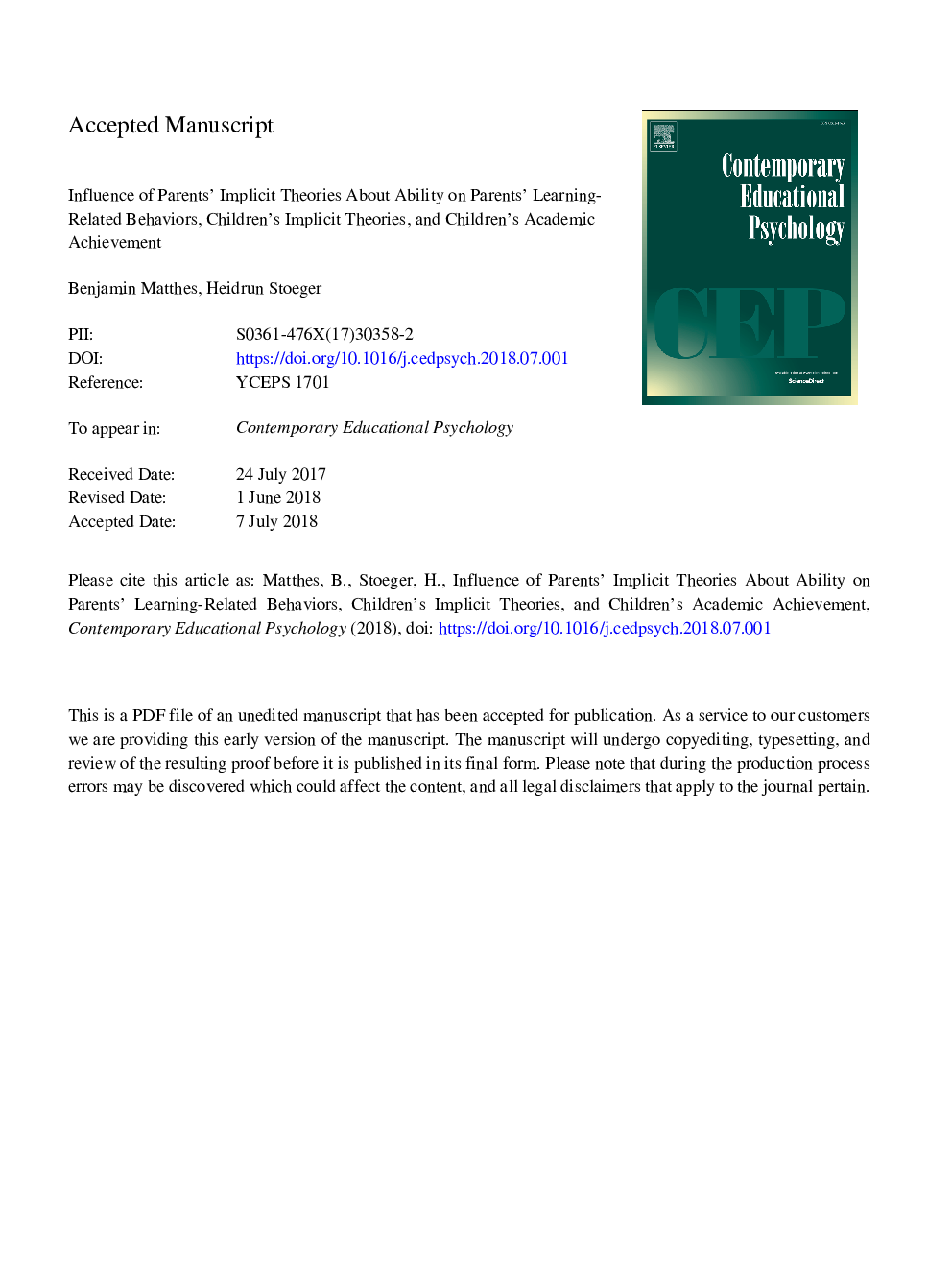| Article ID | Journal | Published Year | Pages | File Type |
|---|---|---|---|---|
| 6839691 | Contemporary Educational Psychology | 2018 | 46 Pages |
Abstract
Although students' implicit theories about ability are known to predict successful learning and achievement, parents' implicit theories about ability have received little attention. Thus, we investigated the influence of parents' theories about ability on their children's academic achievement and the mechanisms behind this influence. We used a structural equation model to examine data from parents and their fourth-grade children in Germany (Nâ¯=â¯723). The extent of parents' incremental theories predicted (a) the extent of children's incremental theories (β = .41, pâ¯<â¯.001), (b) parental learning-related behaviors (less homework-related conflict, β = â.36, pâ¯<â¯.001, and less controlling behavior, β = â.33, pâ¯<â¯.001), and-partially mediated by these two aspects-(c) their children achieving better grades (β = .20, pâ¯<â¯.001). Thus, parents' endorsement of an incremental theory appears to increase children's achievement by reducing unconstructive learning-related parental behaviors and facilitating children's adoption of an incremental theory.
Keywords
Related Topics
Social Sciences and Humanities
Psychology
Applied Psychology
Authors
Benjamin Matthes, Heidrun Stoeger,
